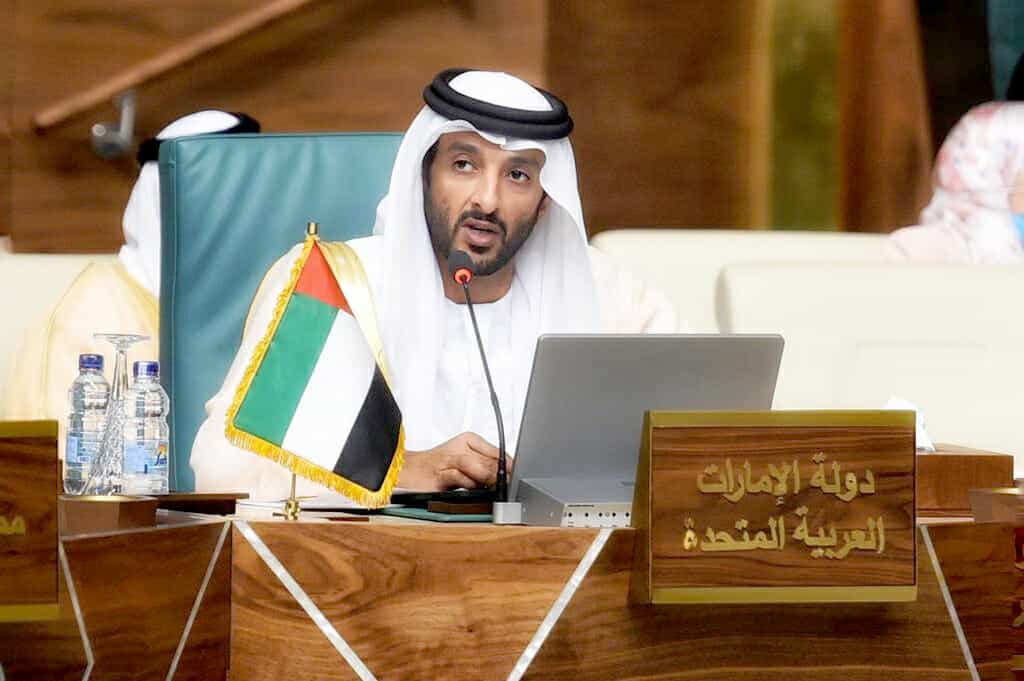Abu Dhabi, UAE — UAE’s real GDP increased by 3.6 percent in the first half of 2024, with the non-oil GDP rising by 4.4 percent compared to the same period last year, said the economy minister Abdulla bin Touq Al Marri.
The preliminary estimates of the UAE’s GDP in the first half of 2024, issued by the Federal Competitiveness and Statistics Centre, said the real GDP reached AED 879.6 billion ($239.47 billion) and the non-oil GDP value reached AED 660 billion.
The contribution of non-oil sectors to the country’s GDP has reached 75 percent.
The estimates also indicated that the UAE’s nominal GDP (at current prices) during the first half of 2024 reached approximately AED 981 billion, registering a growth rate of 5.6 percent. Meanwhile, the value of non-oil GDP at current prices during the same period rose to about AED749 billion, with a growth rate reaching 6.8 percent, compared to the first half of 2023.
Bin Touq said, “The UAE has successfully laid the foundation for a sustainable, diversified economy driven by innovation and knowledge, aligning with global trends while maintaining its position as a premier economic hub regionally and internationally.”
“This progress paves the way for achieving the economic goals outlined in ‘We the UAE 2031’ vision, including raising the UAE’s GDP to AED3 trillion within the next decade.”
The Minister of Economy stated that the robust growth of non-oil sectors during the first half of 2024 reflects the dynamic nature of the UAE’s economy and its capacity to seize emerging opportunities across multiple fields.
Bin Touq noted strong performance in key sectors, including transport, storage, finance, and construction, fuelled by initiatives to promote entrepreneurship, trade, and investment, as well as major developmental projects launched earlier this year. Tourism also recorded sustained growth, further reinforcing the UAE’s standing as a global tourism hub.
Additionally, the Minister underscored the importance of continued efforts and sector-wide integration to drive sustainable and inclusive economic progress.
According to the initial estimates released by FCSC, transportation and storage activities led economic growth in the first half of 2024, with an impressive 8.4 percent growth rate. Financial and insurance activities ranked second with a growth rate of 7.6 percent, followed closely by construction activities at 7.3 percent. Information and communication activities ranked fourth, achieving a growth rate of 5.3 percent.
The restaurants and hotels sector secured the fifth spot, achieving 5.1 percent growth in the first half of 2024, fuelled by exceptional tourism activity across the country. Hotel revenues exceeded AED24.6 billion during this period, registering a 7 percent increase, while the total number of hotel guests across the UAE’s seven emirates reached around 15.3 million, representing a 10.5 percent growth.
Trade activities emerged as the largest contributor to the UAE’s non-oil GDP, accounting for 16.5 percent, followed by manufacturing at 15 percent. Financial and insurance activities took third place with a 12.5 percent contribution, while construction accounted for 11.6 percent. Real estate activities ranked fifth, contributing 7.6 percent.









